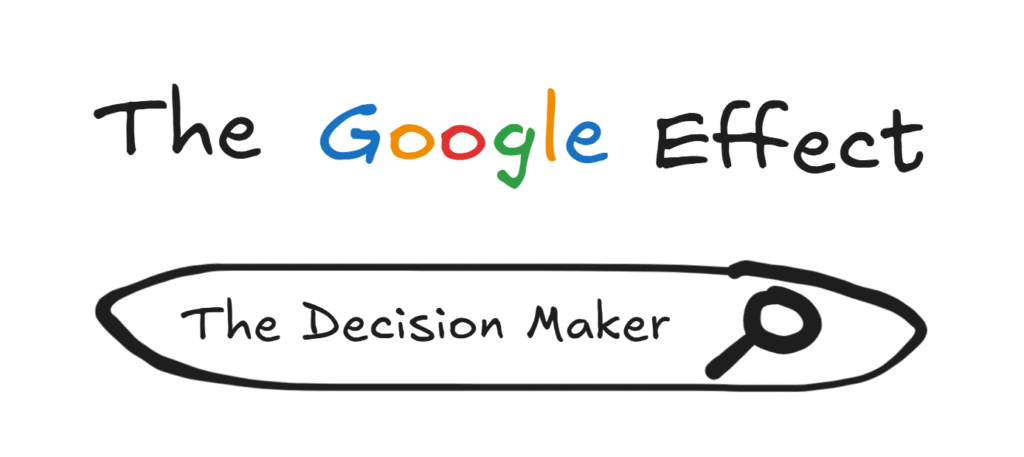
Do you have a habit of asking Google or Alexa everything, even the contact number of your loved ones?
How recently did you dial a number from memory and not just tap and call?
Or tried to recall a fact without simply trying to find it on Google? It’s okay if you are at a loss for ideas. Welcome to the age of Digital Amnesia
We live in a technologically advanced and information at our fingertips. We no longer feel the need to remember things the way we once did because of smartphones, cloud storage, and search engines (hello, Google).
This brings the issue of why we should memorize anything at all when we can look it up on Google.
Are we outsourcing memory to the internet?
What is Digital Amnesia?
Digital amnesia is when we forget things because we know we can easily find them on our phone or the internet. This happens because we live in a world where information is always easy to find and everything is well-connected.
For example, someone might forget a phone number right after hearing it, just because they know it’s saved in their phone. Or you were probably discussing something just now, but you don’t remember the facts now. Somwhere in the back of you mind, it knows you can google it when you need.
The Psychology Behind the “Google Effect”

This exact question was investigated in 2011 by a group of Columbia University researchers under the direction of Dr. Betsy Sparrow. They discovered an intriguing fact: people are significantly less likely to remember information when they anticipate being able to access it later.
We often depend on our phones to look things up instead of remembering them ourselves. Over time, this can affect our memory and thinking skills.
Our brain now focuses more on knowing where to find info, like asking someone or searching online, instead of keeping it all in our head.
Do we remember less because we know our phones will remember for us? Could this hurt our memory over time?
Common Examples of Digital Amnesia in Everyday Life

Here are a few instances where digital amnesia infiltrates our everyday lives:
- Making use of Google Calendar for lunch dates, anniversaries, and birthdays
- losing friends’ or family members’ phone numbers
- Demanding a GPS to navigate to locations you’ve been to several times
- Repeatedly looking up the same queries online
- Relying on stored passwords instead of learning them by heart
Sounds familiar, right?
These days, our brains lean on our phones more than we like to admit.
Does digital amnesia affect cognitive abilities?

This topic caught the attention of many people. There are various studies linked to it as discussed below:
- Some neuroscientists argue that offloading information helps free up mental space for creative thinking, brainstorming, and problem-solving.
But on the same side, others are worried that our brains are reaching their limit when it comes to storing information and retrieving memories.
- A study found that nearly half of adults don’t try to remember important information because they know they can just look it up and find that information.
- That’s a bit concerning, as a study from Neuro Centre NJ suggests that excessive screen use can contribute to attention issues, and one may find it difficult to stay focused on a particular topic.
It can also cause short-term memory loss, which can create hurdles in remembering trivial things.
Are Younger Generations More Affected?

Of course. Having grown up in a world where solutions are only a swipe away, millennials and Gen Z are considered digital natives. It’s now commonplace to multitask between apps, social media, and online courses or employment.
As the BBC points out, Younger generations, particularly Millennials and Gen Z, are more affected by digital dependency.
Young people today often depend on phones and tech to find answers instead of remembering things themselves. Because they’re always switching between apps and staring at screens, their focus gets broken up. This makes it harder for them to fully concentrate on one thing at a time.
Over time, this change is affecting their memory and cognitive capacities by changing the way they absorb and remember information.
Is Digital Amnesia Necessarily a Bad Thing?

Maybe forgetting is not all that bad.
Freeing up mind space: allowing people to get along with their day-to-day tasks, for example, you don’t memorize a map anymore, you use GPS. This gives your brain room to focus on problem-solving, strategy, and creativity.
Evolution: We are shifting from information storage to information management. Also, it was studied that forgetting allows man to take action, just like how we need darkness along with light.
Building group trust: the capacity to rely on one another to remember things.
Tips to Maintain Memory in a Digital World

The following advice will help you build stronger memory:
- Mindful recall: Prior to searching for an answer online, try to recall it. Make short hand written notes for brainstorming. You can also do journaling to give yourself a little reminder.
- Maintain strong retention: Reduce reliance on digital reminders by making short sticky notes and pasting them where you can view them easily. Also, by trying to remember small tasks or to-dos without help.
- Spend time offline: Reconnect with your own thoughts. Build things with personal creativity, style and ideas.
- Journaling is easy to asses, it also helps in boosting memory and understanding.
- Memory boxes: Physical spaces to store objects like letters and another small piece of paper to just grasp and look at a particular occasion.
Conclusion
Is digital amnesia a reflection of our laziness or a result of simply adjusting to a new way of thinking?
In the past, technology has altered our memory. Not all of that is negative. It demonstrates how we are adjusting to a data-saturated world.
The secret is balance. Utilize technology when it’s helpful, but keep your mind active and engaged by challenging it to think, remember, and reflect; this is what makes us genuinely human and intelligent.
Are we simply remembering things differently, or are we forgetting more?

